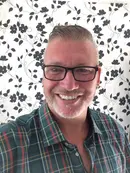Healing from Sexual Abuse.
Sexual abuse is when someone we trust, or someone older, or a person who misuses the trust of their position harms us sexually. We call it sexual abuse because young people (under 16 in the UK) may not fully understand, or agree to these activities since they are still growing up emotionally and are unable to give informed consent, making sexual activity or grooming a criminal offence.
This means that if a person over 16 does these things with someone under 16, they are taking advantage of the younger person, because the younger person can’t legally give consent to it.
Sexual abuse can include things like touching, rubbing, or hurting someone in a sexual way, but also includes inappropriate talking or texting. Sometimes, the young or vulnerable person may not fully understand what’s happening, or may seem like they agree, but it’s usually because they’re scared of saying no, or don’t understand their feelings.

Sometimes, sexual abuse can happen between adults, too, especially when one person has power or influence over the other. It can be a one-time thing or happen many times, for months or years. It can range from inappropriate communication, touching, or more serious things.
The person doing the abusing can be someone you know, like a family member, friend, or even a stranger. It’s important to know that even if you felt some pleasure during the abuse, it’s still wrong and its not your fault. It is an adults responsibility to keep children safe.
People who are going through sexual abuse right now are sometimes referred to as victims and those who went through it in the past are often referred to as survivors.
I’m Paul Parkin – A therapist and life coach. This is why you should work with me:
 I’ve helped both children and adult who’ve been sexually abused, especially by family members. Trust can be broken, and it can be confusing.
I’ve helped both children and adult who’ve been sexually abused, especially by family members. Trust can be broken, and it can be confusing.
I make sure people feel safe when they talk to me. You can get help online, which is private and easy from home or work.
Online therapy is very convenient. You can get help from your home or even your car if you need that kind of privacy.
What some of my recent clients have said about our work together.
‘When I was twelve, my older brother touched me every time our parents left us at home alone. He was sixteen at the time. Now we are both adults and we get along well, but I kept recalling that experience time and time again. I felt bad because I let him do it and I liked how it felt, but then I felt dirty and ashamed. I still fantasised about him making love to me even years later. I felt depressed and I wanted the feelings and the fantasy to go away.
I found Paul online, he came and rescued me just in time. His understanding and support put me at ease, and I was comfortable to tell him everything that happened, even he told me that I didn’t need to talk about the past in detail, unless I wanted to.
He explained that the pleasant feelings were natural and normal as our body is designed to respond in that way, and there is nothing I should be ashamed of.
With Paul’s help, now I can leave that part of my life in the past and feel ok with myself. I don’t feel dirty or ashamed anymore, and I also stopped fantasising about my brother, once and for all.
Now I am looking forward to a brighter future with no shame and depression in it. Thank you Paul’.
Adam. USA.
December 2023.
‘I’m a survivor of abuse who believed I had moved past the trauma until I began dating someone special. When we decided to become intimate, my past trauma resurfaced, leading to intense flashbacks and panic. I sought help and found Paul, a compassionate therapist who provided a safe space and equipped me with practical coping tools.
Through Paul’s guidance, I realised that healing takes time, and I needed to communicate openly with my partner about my past trauma before attempting intimacy.
This communication and the tools Paul taught me, transformed our relationship, allowing us to navigate this sensitive issue together and rebuild trust.
With Paul’s support, I worked through my fears and regained control over my life and emotions, embarking on a transformative journey of healing and growth.
I owe my new found strength and happiness to Paul’s expertise and unwavering compassion, and I’m forever grateful for his role in helping me reclaim my life.‘
Monic. UK.
August 2022.
